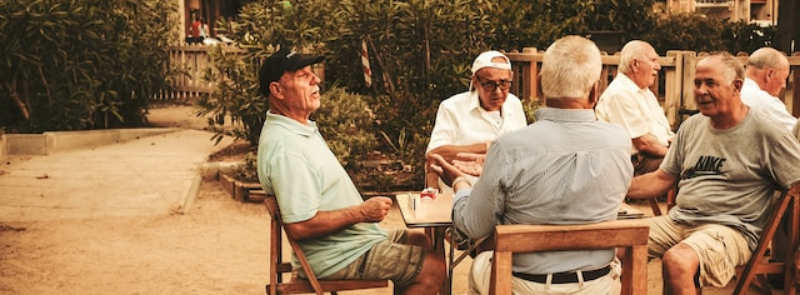
When It Occurs
Every October 1st
Official Website
Timeline
Days Passed (820)
# Hashtags
#InternationalDayOfOlderPersons #IDOP
Annually observed on October 1st, the International Day of Older Persons (IDOP) was established by the United Nations General Assembly in 1990 and observed for the first time in 1991. This day is dedicated to acknowledging the valuable contributions of older individuals and increasing awareness about the challenges they encounter. It also emphasizes the promotion of their well-being and integration into society.
History and Background
- Initiation: The International Day of Older Persons was established by the United Nations General Assembly on December 14, 1990, through Resolution 45/106.
- First Celebration: The first observance took place on October 1, 1991.
- United Nations Involvement: The UN and its agencies, particularly the World Health Organization (WHO), play a significant role in promoting and supporting activities related to this day.
Objectives and Significance
- Raise Awareness: To highlight issues such as elder abuse, healthcare, and social inclusion of older persons.
- Promote Rights: To advocate for the rights and dignity of older persons.
- Celebrate Contributions: To recognize and celebrate the valuable contributions of older people to society.
- Encourage Policies: To encourage governments and organizations to develop and implement policies that benefit older adults.
Themes and Focus Areas
-
Annual Themes: Each year, the International Day of Older Persons has a specific theme that addresses current issues and priorities. Recent themes have included:
- 2023: "Fulfilling the Promises of the Universal Declaration of Human Rights for Older Persons: Across Generations"
- 2022: "Resilience of Older Persons in a Changing World"
- 2021: "Digital Equity for All Ages"
- 2020: "Pandemics: Do They Change How We Address Age and Ageing?"
-
Health and Well-being: Emphasizing the importance of healthcare access, mental health support, and active aging.
-
Social Inclusion: Addressing social isolation and promoting inclusive communities that support older adults.
-
Economic Security: Highlighting issues related to retirement, pensions, and economic stability for older persons.
-
Human Rights: Focusing on the protection of human rights and the elimination of age-based discrimination.
Activities and Celebrations
- Educational Programs: Organizing seminars, workshops, and lectures to educate the public about issues affecting older persons.
- Health Initiatives: Conducting health fairs, free medical check-ups, and fitness activities tailored to older adults.
- Community Events: Hosting community gatherings, cultural events, and social activities to foster intergenerational connections.
- Advocacy Campaigns: Launching campaigns to advocate for policy changes and increased support for older persons.
- Media Outreach: Using media platforms to raise awareness, share stories of older adults, and promote the observance.
How to Participate
- Plan Events: Communities, organizations, and individuals can plan events and activities that focus on the well-being and contributions of older persons.
- Volunteer: Spend time with older adults in nursing homes, community centers, or through outreach programs.
- Raise Awareness: Use social media, blogs, and local media to highlight the importance of the International Day of Older Persons and share relevant information.
- Support Policies: Advocate for policies and programs that support the rights and needs of older adults.
- Celebrate Contributions: Recognize and celebrate the achievements and contributions of older persons in your community.
Global Participation
- International Reach: Celebrated worldwide, with participation from governments, NGOs, community organizations, and individuals.
- Cultural Relevance: Different countries may adapt the observance to reflect their unique cultural contexts and the specific needs of their older populations.
- Collaborative Efforts: Encourages collaboration between various stakeholders, including healthcare providers, policymakers, and advocacy groups.
Resources and Support
- United Nations and WHO: Provide resources, reports, and guidelines to support the observance and address issues related to aging.
- Local Organizations: Many local organizations and community groups offer support and organize events for the day.
- Online Platforms: Websites and social media platforms offer resources, ideas for activities, and ways to get involved.
Notable Observations and Examples
- Government Initiatives: Examples include government-sponsored events, public speeches by officials, and policy announcements focused on older persons.
- Community Programs: Successful community programs often involve intergenerational activities, senior talent shows, and public recognition events.
- Healthcare Campaigns: Highlighting successful healthcare campaigns that focus on preventive care, chronic disease management, and mental health support for older adults.
Key Messages
- Respect and Dignity: Older persons deserve respect, dignity, and the protection of their rights.
- Valuable Contributions: Older adults make significant contributions to society and their achievements should be celebrated.
- Healthy Aging: Promoting healthy aging through accessible healthcare, social inclusion, and supportive environments.
- Global Awareness: Raising global awareness about the challenges and opportunities of an aging population.
The International Day of Older Persons is a vital observance that draws attention to the important issues affecting older adults while celebrating their contributions. It encourages societies to create inclusive environments where older persons can live with dignity and participate fully in community life.


